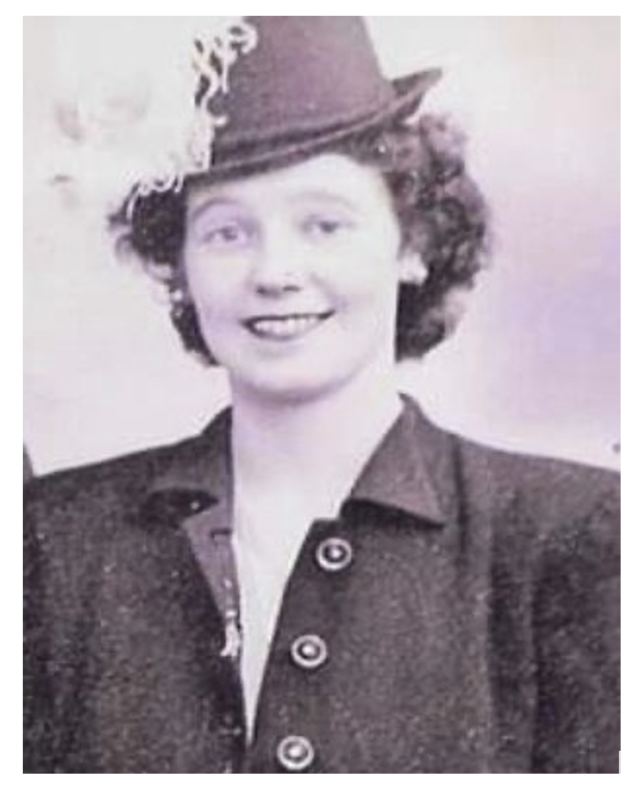
Maureen Flavin – The Woman Who Saved D-Day By Alec Hill

Doing a Routine Job Well, Maureen Flavin Changed History
I don’t often read obituaries, but the following caption caught my eye: “She (Maureen Flavin) helped save General Eisenhower’s invasion from potential disaster.”
When Irishwoman Maureen Flavin passed away at the ripe old age of 100 last month, she was remembered for actions taken on her 21st birthday – way back in 1944. A joint resolution of the U.S. Congress stated: “Her legacy will live on for generations to come.”
What did she do to merit such praise?
Maureen’s Story
As a young postal worker in a small town on the far west coast of Ireland, Maureen’s job included recording and transmitting weather data to Dublin. She had no idea the Irish Weather Service was forwarding her findings to the Allied Command in London.
In an age before satellites and computer imaging, accurate weather information was in short supply. One expert notes that “it was as much art as science in those days.”
For two years, General Dwight Eisenhauer had planned his invasion of France. Due to a full moon and low tides, June 5, 1944, was the perfect launch date. A massive assemblage of 160,000 troops, 11,000 planes, and 7,000 ships was poised to strike.
But before dawn on June 3, Maureen noticed a storm brewing in the Atlantic Ocean and forecast bad weather for the 5th. Eisenhauer’s team went into a tizzy. After heated debates, he decided to delay the invasion and relied on her prediction of a weather “window” on the 6th.
Historian John Ross contends that the invasion would have failed without the delay, and the war might have been lost. Not only would ships have been placed at risk, but planes would not have been able to provide air support.
Only in 1956 – when secret files were made public – did Maureen learn about the significance of her efforts. Years later, John F. Kennedy asked Eisenhower why D-Day succeeded. His reply: “We had better meteorologists than the Germans.”
Maureen continued to run the remote post office for another half-century. When she died, her son reflected: “She got the forecast right. D-Day landings went ahead on June 6, and the Nazis were defeated. We could be wearing jackboots if she had gotten it wrong.”
What lesson might we learn from her life?
Small Things Matter
Sometimes, we are tempted to think, “My work is so small, so insignificant. Nothing matters is at stake. No one will notice if I do my job well or cut a corner occasionally. So, why should I strive for excellence?”
For Christians, three reasons stand out.
Excellence
First, God calls us to strive for excellence in our work. We do so out of obedience. Even if a human supervisor doesn’t review our work, we believe God will. We are accountable to Him for all we do. The apostle Paul encourages us not merely to give “eyeservice” to our bosses but to regard our work as “being to the Lord (Eph 6).” Who’s watching? Our heavenly Father is.
Action
Second, our actions shape who we become. Jesus famously said,
“Whoever can be trusted with very little can also be trusted with much, and whoever is dishonest with very little will also be dishonest with much.”
Luke 16:10, NIV
Character is demonstrated not so much by heroic deeds done in epic situations but by faithfully doing routine tasks well. Mother Teresa once wrote: “Be faithful in small things because it is in them that your strength lies.”
Impact
And third, in ways we cannot predict or even imagine, our small efforts may rescue the lost or even save the planet. In his most famous poem, George Herbert, a seventeenth-century writer, captured this sentiment. The downfall of a nation started with a blacksmith’s slipshod performance:
“For the want of a nail, the shoe was lost,
For the want of a shoe, the horse was lost,
For the want of a horse, the rider was lost,
For the want of a rider, the battle was lost,
For the want of a battle, the kingdom was lost,
And all for the want of a horseshoe-nail.”
Akin to Maureen’s ignorance about the impact of her efforts, I believe that only in heaven will we fully understand the ripple effects of our day-to-day actions. May we be pleasantly surprised to hear Jesus’ words anew:
“Well done, good and faithful servant. You have been faithful a little; I will set you over much. Enter into the joy of your master .”
Matthew 25:23, NIV
####
Alec Hill is President Emeritus of InterVarsity Christian Fellowship USA. He has also served as a Regional Director for World Relief and a Dean at Seattle Pacific University.

Today, March 25, is the last day to register for the Spring Term at Outcomes Academy Online!
Sign up from here for one of these two courses –
The Heart of the Leader | Cultivating a Spiritually Healthy Heart

What is Christian Leadership Alliance?
Christian Leadership Alliance equips and unites leaders to transform the world for Christ. We are the leaders of Christ-centered organizations who are dedicated to faithful stewardship for greater kingdom impact.
Sign up for FREE blog updates.
Upcoming Events
Check back later!


